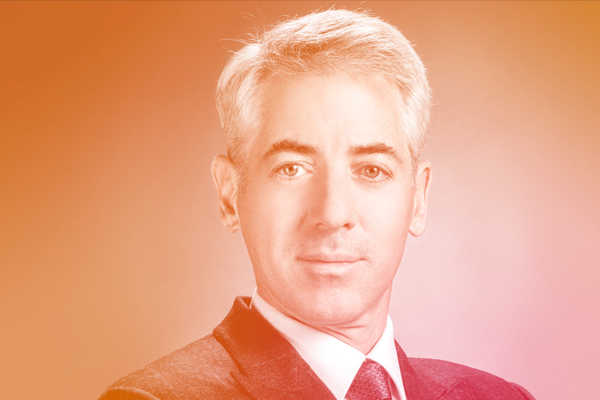
As a young Macquarie analyst, David Moberley was among the first to appreciate the profit potential of a new breed of technology stocks when he slapped a "buy" rating on REA Group in 2009.
The online real estate portal was not anything like the market darling it is today, but Moberley picked up on its potential and recommended it to clients.
It was an inspired call on a stock that was ignored by the rest of the sell side, but even Moberley was surprised how the price kept rising.
"It went from $6 to $12 in 12 months and I was thinking, 'it's gone way too hard'. I couldn't get my head around it. And then it went to $20. It was $125 yesterday."
The REA experience has stuck with Moberley, who moved to the buy side and now heads up the long-short equity strategy at Paradice Investment Management.
He will be pitching what he hopes is another big winner at next month's Sohn Hearts & Minds conference.
Moberley has yet to decide which stock he's going to present, but he shared a newly initiated position.
To find bargains at the moment, investors have to look into the sectors that have been hit by the pandemic. And while most travel-related companies have recovered their valuations, Sydney Airport is still trading at a 40 per cent discount to its intrinsic value.
Often these are hollow victories. Investors that don't own the stock like it, but those that do hate you.
— David Moberley, Paradice Investment Management
The persistent discount is because of the lengthy expected delay for international travel to resume.
But he's comfortable buying the stock based on the number of years he's discounted back last year's normal earnings to get the current share price: which is about five or six years.
Based on that logic, the stock is cheap if international travel and normal trading conditions resume within that period. Any move towards an earlier than expected resumption has the potential to flow through to the share price.
"Equities sometimes trade like options, so very small changes in expectations can drive big changes in price," he says. "The stock can re-rate quite aggressively."
Although there are bargains around, Moberley says this is a particularly challenging time for fundamental investors.
That's because the fierce rally in markets has been fuelled by policy responses. Moberley has found he has sold out of stocks, even though he correctly forecast the earnings, but the price kept rising because he had underestimated the discount rate.
"We want to spend time on stocks but we keep getting dragged into the macro."
Neither he nor the broader market has conviction at the moment, and both are awaiting the US presidential election outcome and further news on a vaccine.
The election result and the policies that may emanate from it could drive the market's expectations about inflation. "Inflation will drive the yield curve, which is going to drive value versus growth. That is what we are focused on."
But he's in the camp that believes ultra-low interest rates and the cheap capital they feed high-growth companies is deflationary, rather than inflationary.
"The lower you drive rates, the more you drive deflation but [central banks] are using the old textbooks."
Moberley's strategy allows him to short stocks but this has been a tricky time to bet against certain high-growth companies. When it comes to his short bets, however, he keeps his cards very close to his chest.
It's another lesson he picked up from his sell-side days when he was bearish on Cabcharge, which at the time was a market darling.
"We were noticing a couple of new competitors had come into the space and were offering incentives directly to the drivers," he says.
To determine the actual market effect, he sourced all the Amex spending at Macquarie on taxis and published the aggregate data. It showed a constant gradual decline in Cabcharge's share of payment volumes.
That, he says, allowed him to identify the early stages of Cabcharge's descent from a dominant monopoly to a structurally impaired business.
"Often these are hollow victories. Investors that don't own the stock like it, but those that do hate you and management won't talk to you.
"Being negative doesn't win you many friends."
So he's keeping any bearish thoughts to himself. He does, however, offer an insight into the two ingredients required for a good short: "an independent mind and good risk management".
The Sohn Hearts & Minds Investment Leaders Conference takes place on November 13.
This article was originally posted on The Australian Financial Review here.
Licensed by Copyright Agency. You must not copy this work without permission.


In yet another fantastic episode with Equity Mates, first-time conference manager Qiao Ma chats with the guys about her incredible first investment, the investment philosophy of core manager Cooper Investors and the investment thesis behind her conference pitch, Shenzhou International.


NYU Stern School of Business Professor, serial entrepreneur and business podcaster Scott Galloway has blasted “sociopathic” big tech and the US government, while outlining the profound implications of COVID-19 for the US economy and its big players.


Australian investors will be very familiar with potential gains that can be created from innovations in the payment system, think Afterpay. In China, the mobile payments market is both enormous and advanced in technical terms, that’s where Yeahka Ltd operates — a top stock choice from Beeneet Kothari of New York-based Tekne Capital Management at the SOHN Hearts & Minds Investment Conference 2020.


Leading US fund manager Bill Ackman has predicted that 2021 will be a “very good” year for the US sharemarket, with a combination of low interest rates, fiscal stimulus and a new president who will not introduce radical policies.


The rise of telehealth and online medicine as a result of the COVID-19 pandemic has been behind the recommendation of New York based fund manager Cathie Wood, for US based telemedicine and virtual health care company Teladoc Health as her stock pick for the 2020 Australian Sohn Hearts & Minds Investment Conference.


When Bill Ackman realised coronavirus was about to run rife in the West he knew he had to do something fast to protect the $US10bn ($14bn) of assets managed by Pershing Square, much of it in restaurant brands that were vulnerable to the economic lockdowns he saw coming. Rather than sell stock, he opted to hedge via credit default swaps.


Halpert's “digital decolonisation” thesis is that entrepreneurs, companies, governments and consumers in developing markets are reclaiming their digital economies and ecosystems from multinationals, and developing indigenous solutions for local problems.


Billionaire investor Bill Ackman bemoaned his losing bet on Warren Buffett’s Berkshire Hathaway during a virtual appearance at the Sohn Hearts & Minds investment conference this week, according to the Australian Financial Review.


Bill Ackman predicts 2021 will be a rewarding year for the equity market and urged investors to "go long", but the Wall Street legend and Pershing Square founder worries that irrespective of Pfizer's vaccine breakthrough, the US faces a grim winter of coronavirus casualties.


Global stocks exposed to the technology boom, whose performance was partially fuelled by the coronavirus crisis, were the big winners from the calls made by top investment minds at the Sohn Hearts & Minds Investment Conference last year.


Leading US fund manager Bill Ackman has predicted that 2021 will be a “very good” year for the US sharemarket, with a combination of low interest rates, fiscal stimulus and a new president who will not introduce radical policies.


Online retail stocks have become the small cap investment story of 2020, according to Todd Guyot, a portfolio manager with Regal’s $320m Australian Small Companies Fund. “We have done well out of the whole online theme of late,” says Guyot, who will be tipping a stock at the fifth annual Sohn Hearts & Minds conference on Friday.


When Bill Ackman realised coronavirus was about to run rife in the West he knew he had to do something fast to protect the $US10bn ($14bn) of assets managed by Pershing Square, much of it in restaurant brands that were vulnerable to the economic lockdowns he saw coming. Rather than sell stock, he opted to hedge via credit default swaps.


Tekne Capital Management portfolio manager Beeneet Kothari says US technology stocks continue to look attractive given their strong earnings outlook and dominant positioning in what he sees as a multi-decade reshaping of economies and business fuelled by COVID-19.


The shock suspension of the Ant Group initial public offering, slated to be the biggest float in history, has left investors reeling, but it could be back up and running within weeks, according to Tribeca Investment Partners’ Jun Bei Liu.


US tech giants are on track: not just to soar through the pandemic, but to structurally lock in their competitive edge well beyond COVID-19. What is more, there will be a tsunami of reallocated capital across the economy, creating huge winners and losers that investors should get ahead of if they don’t want to miss out.


One of the fiercest critics of 'Big Tech', author and academic Scott Galloway, has admitted his bearish call on Afterpay was wrong and warned that America's internet giants are poised to consolidate power following the coronavirus pandemic.


Scott Galloway, outspoken academic and expert on big tech, says "Jedi mind tricks" and "consensual hallucination" are responsible for some huge market valuations, and warns Silicon Valley giants will entrench their dominance in the post-pandemic world.


It has gone down in Wall Street folklore as one of the greatest trades in history – a $US27 million ($37.8 million) bet during the market meltdown in March that returned $US2.6 billion in the space of three weeks. And the mastermind behind it, New York hedge fund titan Bill Ackman, is now bracing for another bout of turbulence.


Wall Street legend Bill Ackman says megacap stocks such as Starbucks will come out of COVID-19 with a bigger moat and a market dominance like never before, and no election outcome will make a difference to the plight of wrecked small businesses.


A little under a year ago, Cathie Wood named Tesla as her top stock pick for 2020. Speaking at the Sohn Hearts & Minds Investment Leaders Conference in Sydney last November, Ms Wood, who runs US technology-focused investment firm Ark Invest, said her bearish case was that the stock price would double by 2024. It hit that milestone less than three months later.


Rory Lucas may have one of the best jobs in finance. As the chief investment officer of Hearts & Minds Investments (HM1), it's his duty to oversee the $780 million portfolio of the best ideas from some of the world's top investors.


Legendary Wall Street investor Bill Ackman will headline the 2020 Sohn Hearts & Minds investment leaders conference this year in a major coup for the event that has raised more than $20 million dollars for medical research since its inception in 2016.